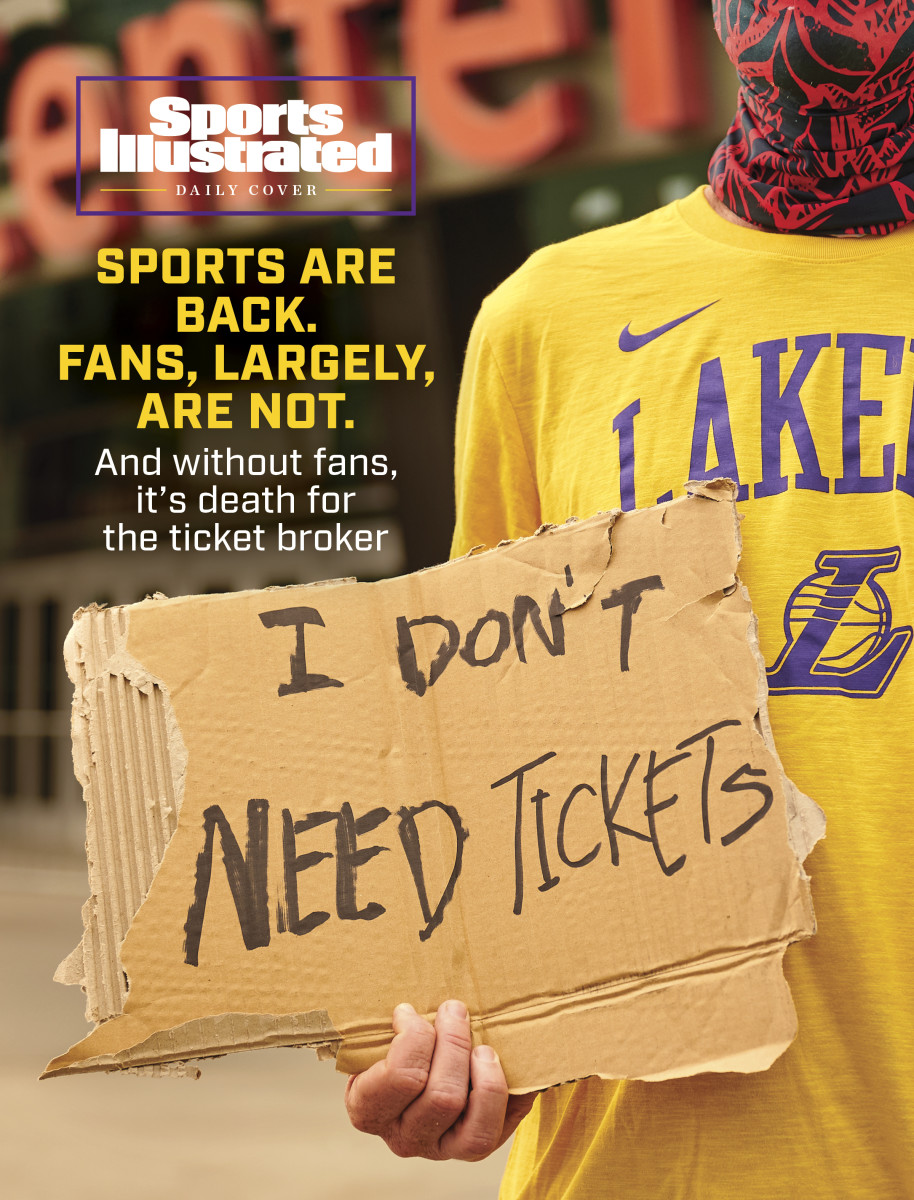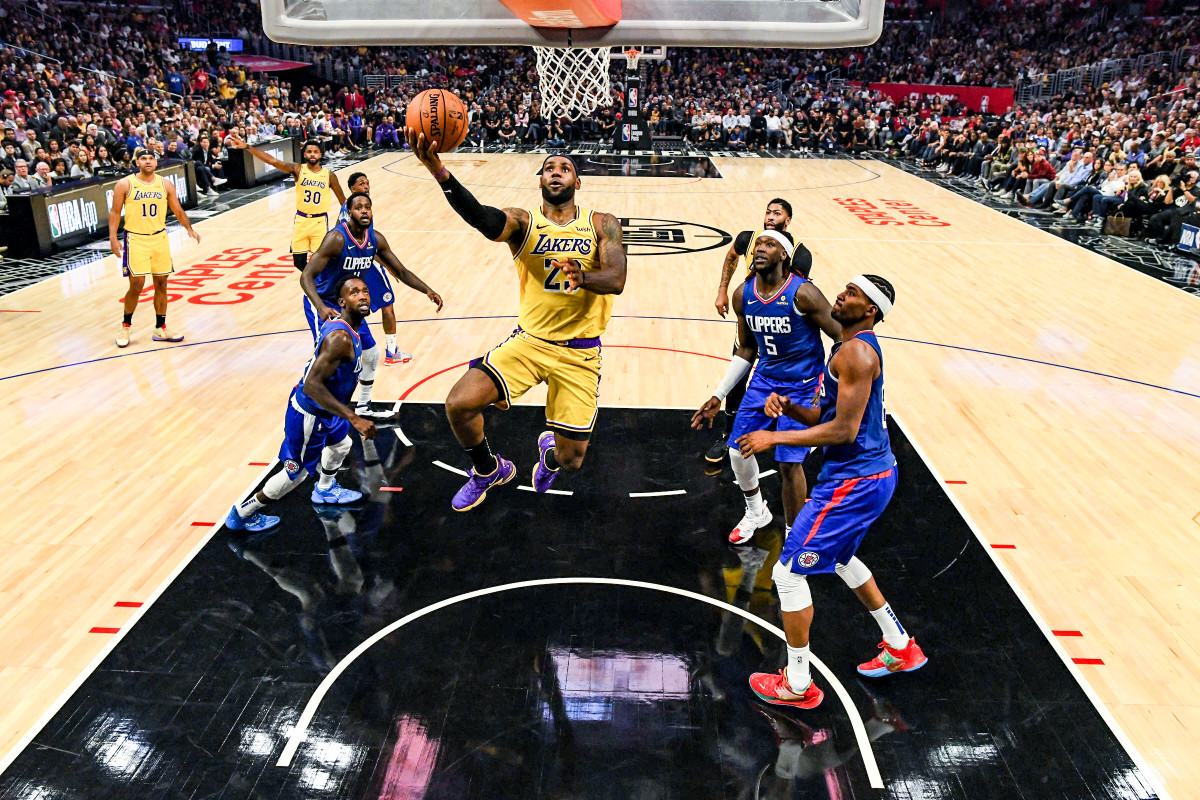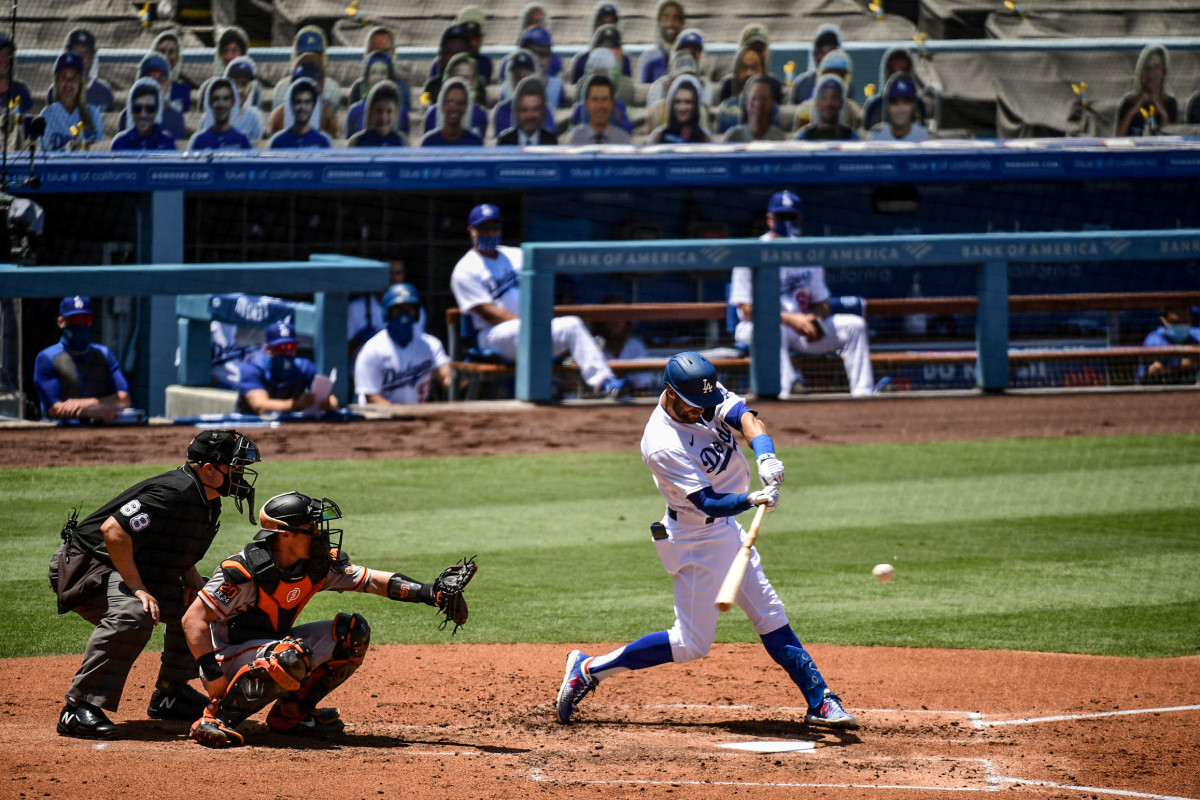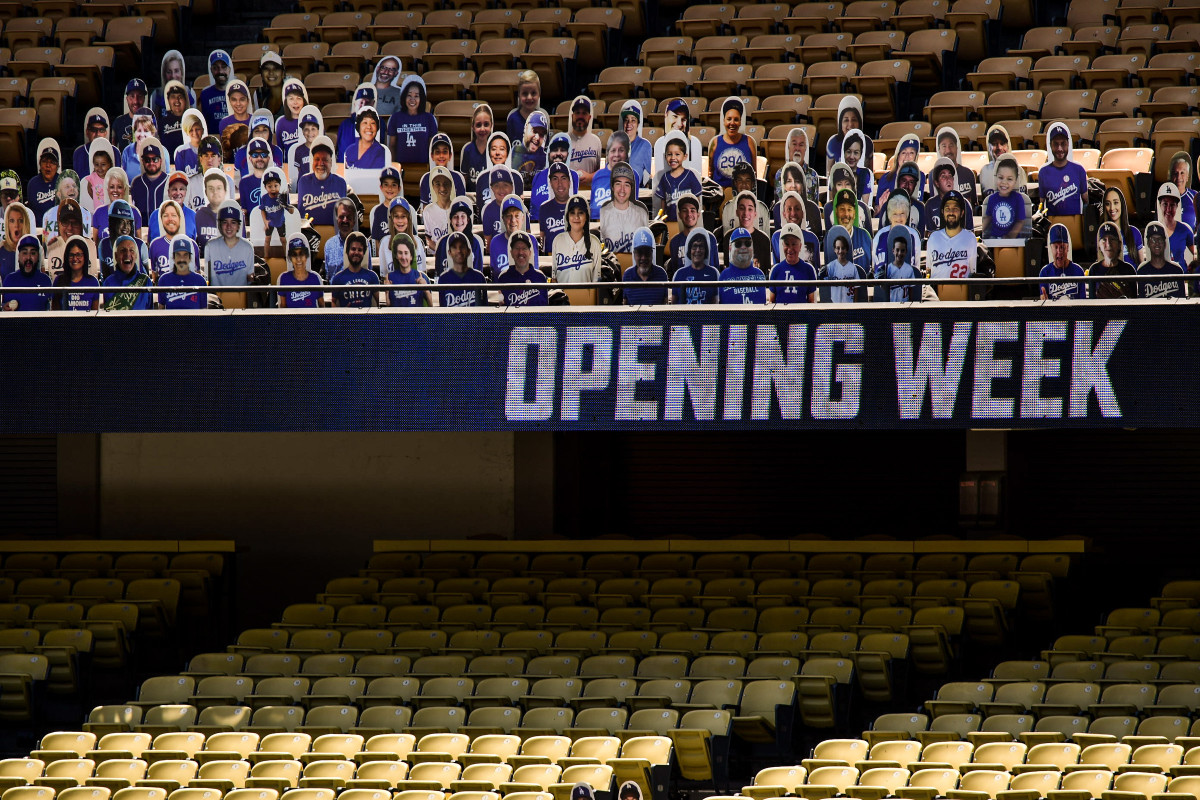“You Just Lose Money Every Day”
The place: Los Angeles. The time: the start of 2020 A.D., before the great pandemic hits. Life is, generally, good. Especially in the local sports scene. For perhaps the first time ever, both the Lakers and Clippers are shaping up as contenders to win the NBA title, their shared venue likely to emerge as both a staple and center of the NBA playoffs. The Dodgers—always a strong draw—not only come to spring training armed with a World Series–caliber team, but the franchise is set to host Major League Baseball’s 2020 All-Star Game. The Rams and the Chargers are both poised to christen, finally, a new stadium in Inglewood, part of a gleaming $5 billion entertainment complex, the talk of the town for years.
So it was that Barry Rudin was projecting that 2020 would be the most profitable financial year in his career. Which is saying something. The owner of Barry’s Tickets, Rudin has been Southern California’s top broker for decades. He started his business in high school, in the early '80's, operating out of his parents’ home in the San Fernando Valley, and he continued as an undergrad at USC, acquiring and dropping off tickets between classes. Then he made a small fortune brokering tickets at the 1984 Summer Olympics. Since then he has been front, center and courtside in the ticketing game. So much so that, while his business is mostly run online, he has his own office in the Luxe Hotel on Figueroa, a block away from Staples Center.

Then came COVID-19. You’d be hard-pressed to name an industry that hasn’t been impacted negatively by the pandemic, but sports, of course, have been hit particularly hard. For all of sports’ virtues and binding powers, there are few activities less consistent with social distancing than cramming into an arena, standing shoulder to shoulder with other fans and screaming at the top of your lungs.
Even after games started to resume this summer, significant financial pains remained without fans. Almost one-third of Major League Baseball’s estimated $10 billion in revenue comes from ticket sales. Tickets account for 22% of NBA monies—a loss in excess of $500 million during the pandemic.
Then there are the ticket brokers and resellers. In Los Angeles, with Staples Center (capacity: 20,000), Dodger Stadium (56,000) and the new SoFi Stadium (up to 100,000) all shuttered … with the Coachella music festival (250,000) canceled until further notice … with the Hollywood Bowl (17,500) on hiatus … and without even Pac-12 college football this fall, Rudin’s projected $50 million-plus year is suddenly shaping up as a net loss. He’ll be lucky to unload a quarter of the 200,000 or so individual tickets he’d intended to sell in 2020. “As you’d probably expect,” says Rudin, “it’s been brutal for us.”
He’s not alone. With stadiums and arenas and theaters sitting empty—save for the odd interloper—and all those unsold seats collecting dust, the ticketing business has been punished worldwide. The stock price of Live Nation went from $75 per share on Feb. 19 to less than $30 a month later. Viagogo, which owns StubHub, has suffered deep losses; the company faces a class-action lawsuit over its slowness in refunding customers while StubHub cut two-thirds of its employees. Countless smaller brokers and resellers, unable to deal with the liquidity crisis, have gone out of business entirely. “Put it this way,” says Rudin, “if you didn’t have savings in the bank, you’d be in a lot of trouble. You have zero income—you went from whatever you sold to, literally, no income—so your bank looks at you differently.”

Distilled to its essence, the ticket-resale business model is fairly simple: Barry’s Tickets and its competitors buy blocks of seats from teams, venues, existing season-ticket holders and other online sources. Rudin and his staff then turn around and sell those tickets for something over face value. The margins vary, but profits can be considerable.
With no games or concerts staged in front of fans—no supply, no demand—the entire business model collapses. It’s not simply that the revenues dwindle to $0.00. It’s the timing and the cash flow, too. While Rudin refunded his customers’ payments immediately and made good with his creditors, the teams and venues and credit card companies were slower. “I’ve spent tens of millions of dollars on American Express buying tickets over the years, and I’ve always paid on time,” he says. “Why am I waiting a month to six weeks to get my money back, especially when I need it, in these times?”
He has also been asked already to make his traditional 50% down payment toward next season’s tickets (and he paid for Chargers seat licenses at SoFi Stadium—money that was due Feb. 28). “The teams aren't giving us all our money back; they're keeping it for next year,” he says. “But [as a reseller] you can't say to your client: Hey, I’m going to hold on to your money until next year. I'm good for it.”

Rudin says that while most teams eventually refunded money from canceled games, the speed varied. He holds up the L.A. Kings as an organization that acted quickly. Others were considerably less swift; some of those teams still owe him a partial refund. (And as he waited to have his funds returned, the S&P 500 surged by more than 30%.)
There’s also the matter of staffing. With no revenue, Rudin was forced to lay off or furlough employees—he reduced a workforce that numbered 44 at the start of the year to five full-timers. He received a Paycheck Protection Program [PPP] loan, which he estimates saved him 25% of his losses. “To get forgiveness, you had to hire everyone back for the first month, even if you didn’t need them,” he says. “Then employees realized that if they were put on temporary layoff status, they would receive additional weeks of health benefits. So I laid them off again, which helped extend their benefits.”
Though Rudin isn’t selling any tickets, he still has overhead, such as continuing to platform his website. He still has a rented office in Calabasas. (The Luxe hotel office downtown is now being used as an emergency homeless shelter, so the rent has been waived.) He’s also had to retain his full accounting staff to deal with refunds, transfers and bookkeeping. “You just lose money every day,” he says. “You’re paying down a credit line with nothing coming in.”
But wait. There’s more. Barry’s Tickets does its most brisk business in the postseason, especially when local teams are involved. Rudin says the most profitable football game in the company’s history was the USC-Texas 2006 national championship, at the Rose Bowl. Given that COVID-19 hit in mid-March, Barry’s Tickets missed out on all its biggest revenue opportunities, especially in the NBA, where visions of a Lakers-Clippers Western Conference finals once danced in Rudin’s head. Six months later, with that L.A. dream just one Clippers win away from becoming an Orlando-bubble reality, it doesn’t matter.

In recent years, Barry’s Tickets—like most independent brokers—has endured plenty of challenges and business gyrations. StubHub, SeatGeek and dynamic ticketing became the collective bane of resellers. In sports, the formation of On Location allowed some teams to control the secondary market themselves. When the Dodgers went to the World Series in 2017, Barry’s Tickets had more than 1,200 seats in Dodger Stadium. Afterward, says Rudin, the team made a consolidation deal that effectively cut out local brokers like his.
The same technology that makes selling easier than ever and enables Barry’s to do the vast majority of its business online can be an impediment, as well. Ticketmaster recently upgraded its technology to use IP addresses in hopes of identifying resellers and blocking their attempts to purchase swaths of tickets. “Even before COVID,” says Rudin, “it was already getting harder and harder for a broker to be successful.”
But those changes, in retrospect, were blips compared with this existential crisis. Brokers and resellers prepare for the equivalent of mix-ups at the ticket window. Months upon months without any tickets sold was unimaginable.
Miserable as business has been in 2020, Rudin sees some room for optimism. For one, he predicts that when sports fans and concert-goers finally come back, there will be a thunderous ticket demand. “The moment there’s a treatment or a vaccine, the spigots are going to go on and people are going to go to concerts and sports like crazy.” He believes that the bright, shiny object that is the NFL’s newest venue, SoFi Stadium, will attract fans, regardless of how the Rams and Chargers play.
Rudin also suspects that when the turnstiles again start rotating and fans return in search of tickets, fewer competitors will be around to share in the bounty. “You try and make opportunities out of a crisis,” he says. “If you can survive this, you’ll come out of it with an edge.”
On a personal level, he downsized and sold his home at the right time, and he made some money investing in the stock market. He also got a glimpse of his future. “I get to taste what retirement is gonna be like,” he says. “Then I gotta get back to work. It’s not the worst thing in the world.”

